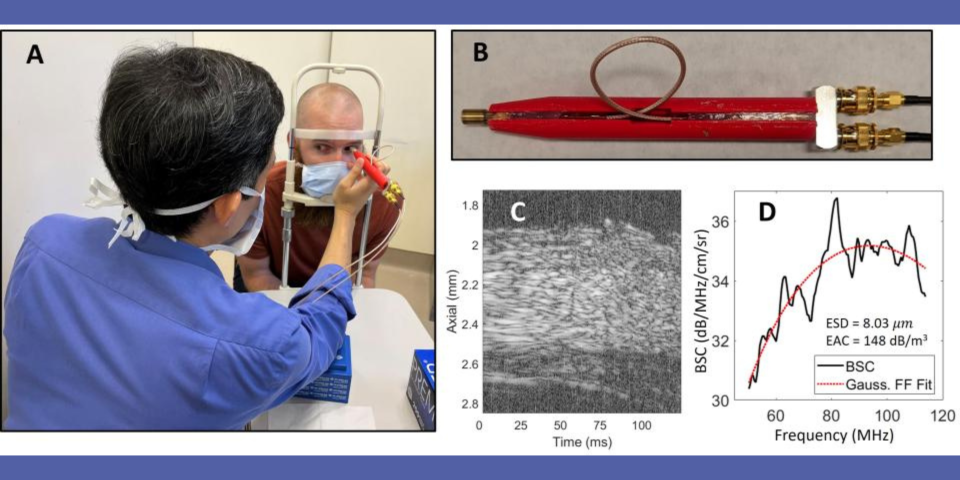The goal of this project is to develop a novel, low-cost, compact, point-of-care (POC) ultrasound system to assess myopia severity and progression in vivo. Myopia prevalence is increasing worldwide and pathologic myopia is one of the leading causes of blindness. Myopia originates from structural and mechanical changes in the sclera that precede vision-threatening ocular changes. Currently, no method exists to assess myopia progression and severity quantitatively in vivo, and this project seeks to fill this gap. The POC instrument to be developed consists of a single-element, spherically focused transducer operating at an 80-MHz center frequency mounted in a handheld probe and connected to a computer equipped with dedicated software, hardware, and a touch screen for ease of use using a graphical user interface. The POC instrument collects radiofrequency (RF), A-line data at a high pulse-repetition frequency while in direct contact with the anterior sclera. The RF data will be processed using quantitative (QUS) methods to derive so-called QUS estimates associated with the elastic and microstructural properties of the sclera. The QUS estimates will be based on the backscatter coefficient and envelope statistics as well as on highly innovative passive elastography. The POC instrument will be portable, low-cost, real-time, and nonionizing. It will be very similar to pachymeters currently used by ophthalmologists for biometric measurements, which will facilitate its adoption by clinicians. The POC instrument is deployed at our collaborating clinical site, the Singapore Eye Research Institute, to acquire and process data from 100 patients during a prospective clinical study aimed at assessing the value of the POC instrument for evaluating high-myopia patients. Specifically, the clinical study will test the ability of the system to predict myopia severity and progression. If successful, these studies will not only advance myopia knowledge significantly, but, equally important, the proposed POC instrument will revolutionize care for myopia patients by providing a low-cost, easy-to-use, and safe means to assess disease severity and progression.


